 Skip to content
Skip to content

Umrah is a deeply spiritual journey of purification of the heart, seeking Allah’s mercy and strengthening one’s faith, to embark on which is a great honour. But before entering into this holy journey, the right Umrah Niyyah (intention) is required. Sincerity and devotion are as important in performing pilgrimage as in all other acts of worship, and the pilgrimage is accepted and will yield great reward. If you are a first timer or you already have been to Umrah, you must know the importance of Niyyah and learn the important duas for Umrah which will help you make the most of this blessed journey.
Proper planning involves from obtaining an Umrah visa to selecting the best Umrah packages to make your Umrah an experience of a smooth and spiritually enriching one. Connecting with Allah on a deeper level is possible by making the intention for Umrah at the designated Miqat and reciting the correct duas during each step of the pilgrimage. This guide will walk you through the importance of Umrah Niyyah in explaining how to make it, and discussing the essential duas to recite when making Umrah.
Niyyah, as an Arabic word, means intention or purpose and in the context of worship it means the sincere intention of a believer to perform an act for the sake of Allah; and it is not a verbal declaration, but a deep conviction of the heart. Niyyah is a private and silent conversation between the servant and the Creator, which begins any act of worship, be it Salah, fasting, Hajj, or Umrah, unlike spoken prayers or supplications.
Niyyah in Umrah is very important as it is the spiritual tone of the whole pilgrimage. It is the pilgrim’s dedication to perform all rituals with sincerity and devotion and make every step according to the divine guidance. In making Niyyah at the designated Miqat, a pilgrim mentally and spiritually transitions into the sacred journey, reaffirming his/her purpose of seeking Allah’s mercy and blessings.
Niyyah in Islam is not just words, it is the base of every worship, it gives the meaning and the purpose to every act of worship. The Hadith of Prophet Muhammad (PBUH) says as beautifully, “Actions are judged by intentions and everyone will be rewarded according to their intention.” (Sahih Bukhari & Sahih Muslim). This clearly shows that the authenticity behind an action is more important than the action itself. Allah’s believer must be aware of the purpose of his heart and mind, and the devotion to Allah in every deed he does.
In relation to Umrah, Niyyah is not just a mere formality but the very core of the pilgrimage that makes it a spiritually rich affair. The pilgrimage literally symbolizes the pilgrim’s commitment to the seeking of Allah’s blessings, to the lifting of the journey from the plain of the physical to the plane of faith, love and obedience. Niyyah is the bridge between external rituals and internal devotion, and it makes sure that every step one takes in Umrah is done with sincerity and a profound connection with the Almighty.
Niyyah has been a fundamental part of Islam and the sincerity behind every act of worship. In the era of Prophet Muhammad (PBUH), the intention became a major factor to differentiate between the true devotional practices from those done for the sake of social recognition. The Quraysh of Mecca did not always perform religious customs sincerely, but they did them out of habit or for worldly praise rather than with faith. Islam explained that in order for Allah to accept any act, it had to be done with a pure heart and a pure intention.
The Hadith of Umar ibn al-Khattab from which we learn the most profound teaching of Niyyah is the one in which the Prophet (PBUH) said: ‘Actions are judged by intentions, and every person will be rewarded according to their intention.’ The time of this Hadith was during Hijrah (migration) from Mecca to Medina and some people migrated out of personal reasons and not for the sake of Allah. This was to reinforce the fact that the value of any action is judged by the sincerity behind it, and that Niyyah is a very important spiritual aspect of every Muslim’s life.
Niyyah is important in both Hajj and Umrah as it is important to perform every ritual with sincerity and devotion. These sacred pilgrimages are made up of many rites, any one of which must be performed with a certain intention for the rite to be valid. For example, not so much donning a white garment as much wearing Ihram entails entering into a state of purity and devotion. Tawaf (circummutation of the Kaaba) and Sa’ee (walking between Safa and Marwah), like all abdadah of Raiyaan, must be performed with conscious intention of complying with Allah’s mandates and make them acts of real piety rather than physical concretions.
The importance of Niyyah is brought out in a powerful story from the Prophet’s (PBUH) time. A man wanted to do Hajj but could not do so due to his sick neighbour. When the man was informed that the Prophet (PBUH) knew about his deeds, he praised the man, saying that Allah rewards those who do not do deeds for the sake of the people, but for the sake of Allah. It shows that the value of a pure Niyyah even when circumstances do not allow for action pleases Allah.
Umrah journey is very spiritual journey, there are many niyats and duas at different stages. The Niyyah behind each stage of the sacred journey is specific and sometimes a corresponding dua is required to emphasise the pilgrim’s mindfulness and connection to Allah at each step.
Prior to entering the state of Ihram, a pilgrim is required to make the intention to do Umrah. The Niyyah is made in the heart and can be verbalized by reciting “Labbayka Allahumma Umrah” (Here I am O Allah to perform Umrah). Then comes the Talbiyah, something powerful uttered in devotion to Allah. By saying these words, the pilgrim confesses their dedication to the Umrah as a service to Allah and to do it away from the world’s temptations, the pilgrim is in a state of spiritual purification.
When a pilgrim comes near Masjid al-Haram, a feeling of awe and gratitude is deep in the heart. It is a very spiritual moment and one should recite: Allahumma Aftah Li Abwaba Rahmatika (O Allah, open the doors of Your mercy for me). This dua tells the pilgrim that when stepping into the sacred mosque, it’s not just a physical act, but an invitation to Allah’s divine presence, seeking His mercy, blessings and forgiveness as the pilgrim is about to perform his rituals.
While performing Tawaf (circumambulating the Kaaba), the act of circumambulating the Kaaba, pilgrims make the intention: “O Allah, I have performed Tawaf of Umrah to please You. I make it easy for you and accept it from me.” Tawaf symbolises the devotion and submission to Allah through which pilgrims proceed in unity reciting prayers and thinking about their faith and horizon. Pilgrims recite between the Yemeni Corner and the Hajar al-Aswad: “Rabbana Atina Fid-Dunya Hasanat, Wa Fil-Akhirati Hasanat, Wa Qina Azab an-Nar” (Our Lord, grant us good in this world and in the Hereafter and protect us from the Fire).
There is no particular Niyyah required for Sa’ee, but pilgrims do it in the hope of pleasing Allah. One can say before starting: “O Allah, this is Sa’ee between Safa and Marwah for the sake of Your pleasure and obedience.” To walk from one hill to the other is the act of perseverance and faith that Hajar (AS) did in the search for water for Ismail (AS). When pilgrims reach Safa they recite: “Inna Safa Wal-Marwah Min Sha’airillah” (Indeed, Safa and Marwah are among the symbols of Allah), remembering trust, patience and divine mercy.
After performing all the rituals of Umrah, it is a time to turn to Allah with gratitude and humility. Prayers are made for personal needs and seeking forgiveness by the pilgrim as he recites: ‘Allahumma Taqabbal Minna Wa-Aghfir Lana Wa’rhamna’ (O Allah, accept this service from us, forgive us, and have mercy upon us). This final supplication is a culmination of a very spiritual journey, a reminder to the pilgrim that real success is found in seeking Allah’s acceptance and returning home with a pure heart and renewed faith.
Hajj is an obligation that only those who can afford to do it must do once in a lifetime, and its Niyyah is very heavy spiritually. Pilgrims make a heartfelt intention to perform Hajj for the sake of Allah before entering the sacred state of Ihram. It is verbalized by reciting: “Labbayka Allahumma Hajj” (Here I am, O Allah, to perform Hajj). This is a declaration of the start of a very deep and transformative journey, the total submission to Allah, detachment from worldly issues, and fulfilling one of the greatest pillars of Islam.
The Niyyah for fasting is a silent commitment in the heart to fast sincerely for Allah. It is not obligatory to verbalize it, but one can recite: ‘Wa bisawmi ghadinn nawaiytu min shahri Ramadan’ (I intend to fast tomorrow in the month of Ramadan). The intention for obligatory fasts should be made before Fajr, and the fast is to be observed with full consciousness and devotion. It adds to this spiritual purpose of fasting by making it about self-discipline, worship and seeking Allah’s pleasure.
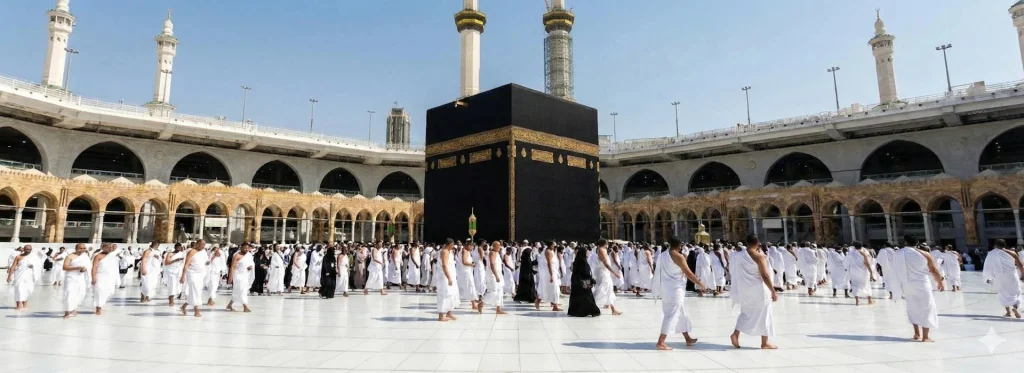
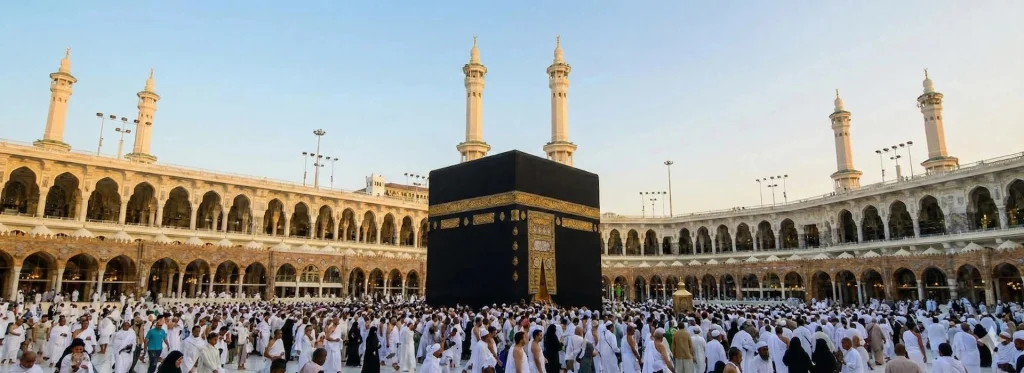
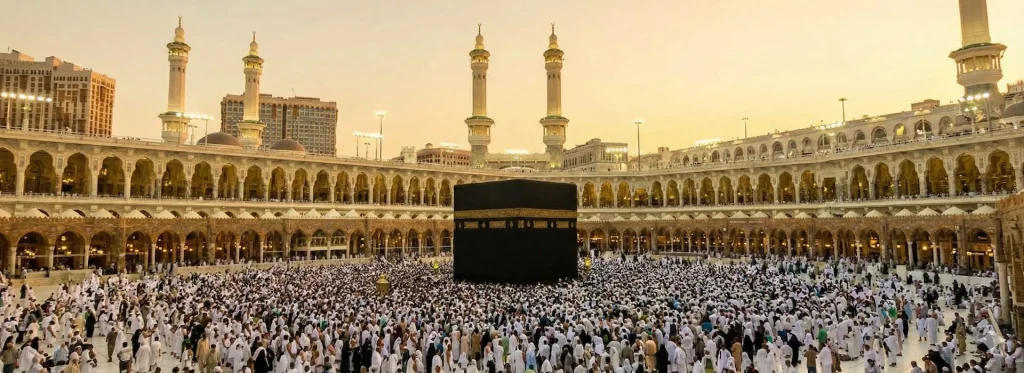
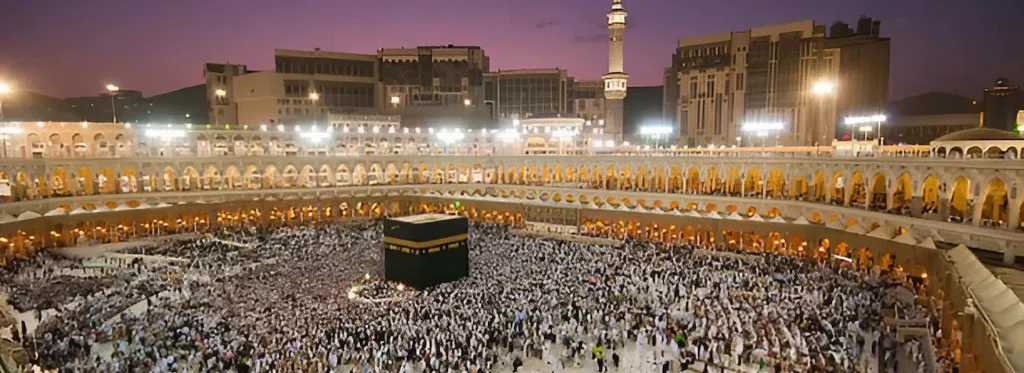
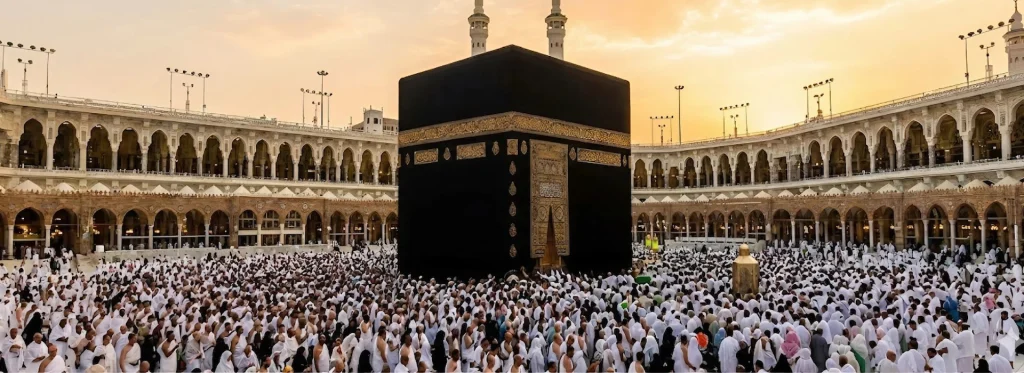

Mohamed Al Tenaiji Travels offers expert travel and Umrah services worldwide. We strive to provide a seamless and unforgettable journey for our clients.